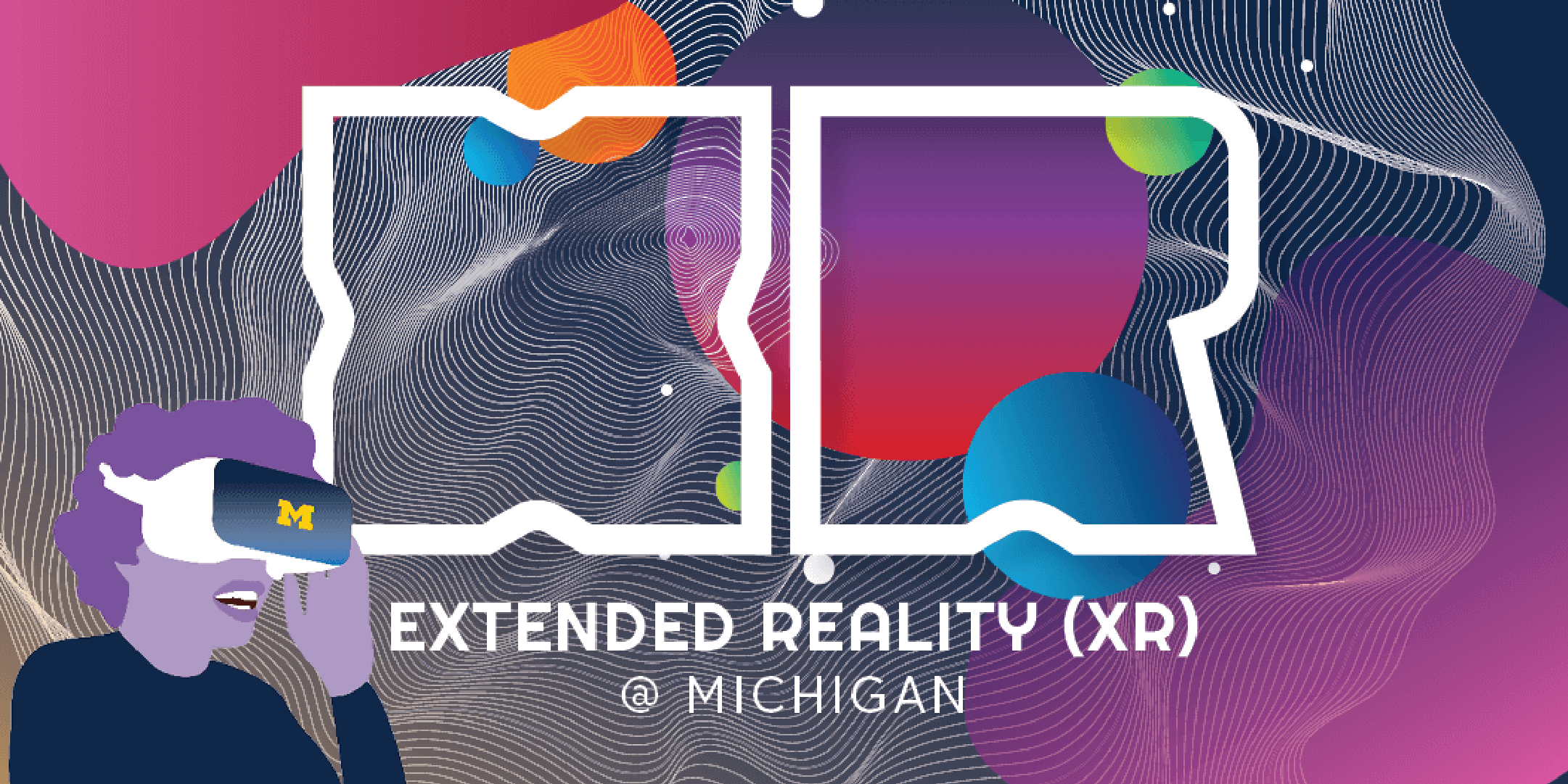XR security, privacy, safety and ethics considerations are topics that will always be important in the field of XR application and integration. In Europe the GDPR provides regulations in these areas and in some cases also in the US, yet there is an increasing necessity for more practical innovative considerations for working with XR that can keep up with developments. The XR initiative led by Jeremy Nelson strives to build a set of instructions concerning some of these areas specifically aimed at institutions that are new to adopting XR. In this meetup, we discussed the initiative, its potential and its developments.
About Jeremy Nelson
Jeremy is the director of the XR Initiative at the Center for Academic Innovation at the University of Michigan. Besides spearheading the XR Initiative, he works on developing projects and experiments that integrate XR into residential and online curricula, and to create innovative public/private partnerships to develop new XR related educational technology. His planned activities within the initiative include projects like implementing 360 degree video to create interactive experiences, all the while focusing on learning goals and objectives.
XR Initiative
First of all, the attendees of the meetup introduce themselves and are invited by Jeremy to a presentation on the XR Initiative. He follows a set structure but anyone is welcome to ask questions or discuss at any point. A recording from this is presented above. We’ve done our best to condense the most important remarks and discussions into a few paragraphs below.
Jeremy jokingly kicks off with: ‘if you’re going to require students to use their social network account to use VR headsets I will personally come and confiscate them’.
About ten minutes into the presentation, at ‘potential risk areas’, Thomas asks whether the initiative works on all the topics he mentioned because it seems ambitious for quite a new project. Jeremy answers that there are many things that arose when they initially thought about writing a whitepaper, this kept expanding and while not being an exhaustive list, it is a fair attempt at highlighting the more important potential risk areas. David Murphy then asks what issues from the risk areas list dread him most, to which he responds that opaque data collection that concerns institutes and students worry him. Jeremy mentions a Stanford paper that mentions how biometrical data can be retraced to individuals with high accuracy. The discussion around data then remains in the hardware space for a while, give the video a watch for more details.
Q&A session
The presentation naturally flows into a Question and Answer session, where David Murphy starts off the discussion with an analogy of the Wild West in the early days of the internet. Where the internet was an unregulated free-for-all where no legislation or interoperability was yet really in place. Currently, he says, we are still in a similar space with XR, so setting up this project could prove helpful and is very much an act based on the retrospective learning experience from those early days. David then raises the question whether the intended direction of legislation and considerations will correspond with the reality of how XR might actually evolve and be used. ‘Are we not overtaking actual development of this area trying to prevent a situation like the early 90’s?’ Javier then makes the point to set out with the intention to design applications in the field with the earlier mentioned intentions from the ground up, rather than from the top down. Murphy then asks how to put into action and actualise these points and proposes to maybe look at the field of AI or similar to see what works in this respect.
Sally asks whether there was a concern that predated the start of the XR initiative. Jeremy replies that it was a meeting with a chief security officer that sparked interest in the importance of precaution regarding these matters on a scale involving so many students, staff and data.
Furthermore
Jelger takes the floor on the matter of actualising the aforementioned concerns. Walter Gianuzzi for example wants to set up a shared knowledge space about implicit knowledge that a lot of XR experts possess, in this way lowering the bar to entry into the field for newcomers. Jelger then announces a meeting (not a meetup) on the 3rd of May in which interested people can join to brainstorm and provide input on the content and structure of this knowledge base. If you are interested in joining this discussion, please send us a message.
- The next XR ERA meetup will take place on the 20th of May coinciding with a SIG Virtuality meeting in Gather Town about which XR ERA community members will receive an invite soon. Not a member yet? Sign up here.
- The slides that Jeremy used can be found here.
- After these announcements we had a small discussion about some current topics like, hygiene of XR equipment, issues of lending equipment, hardware, regulations and data privacy. You can watch this in the video below, thank you for reading!




